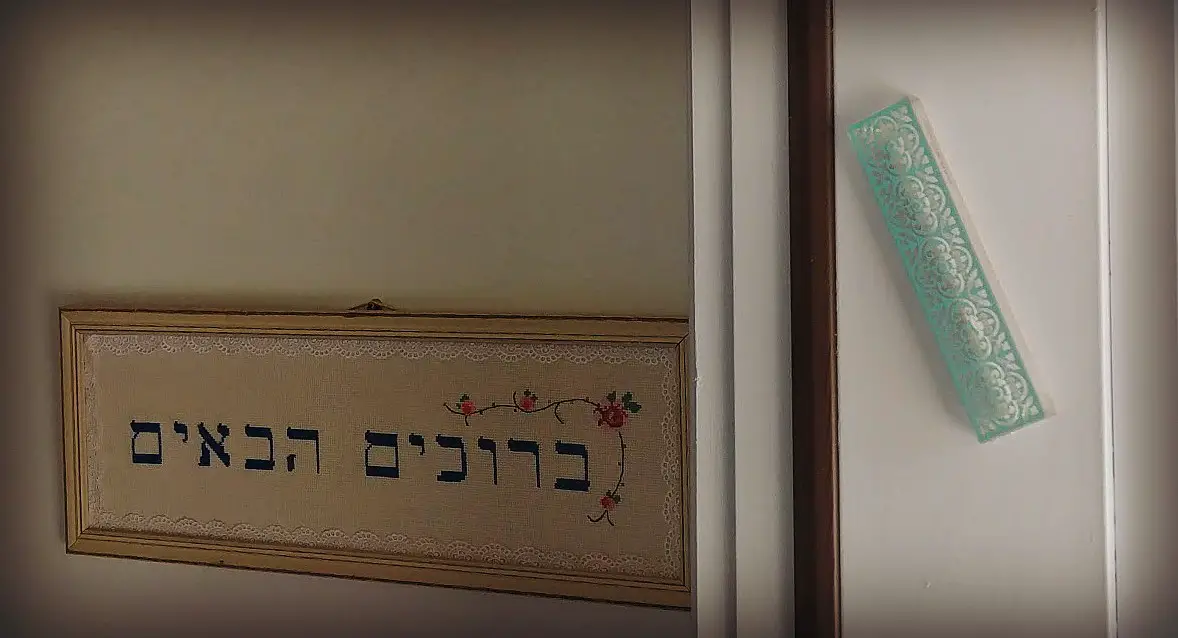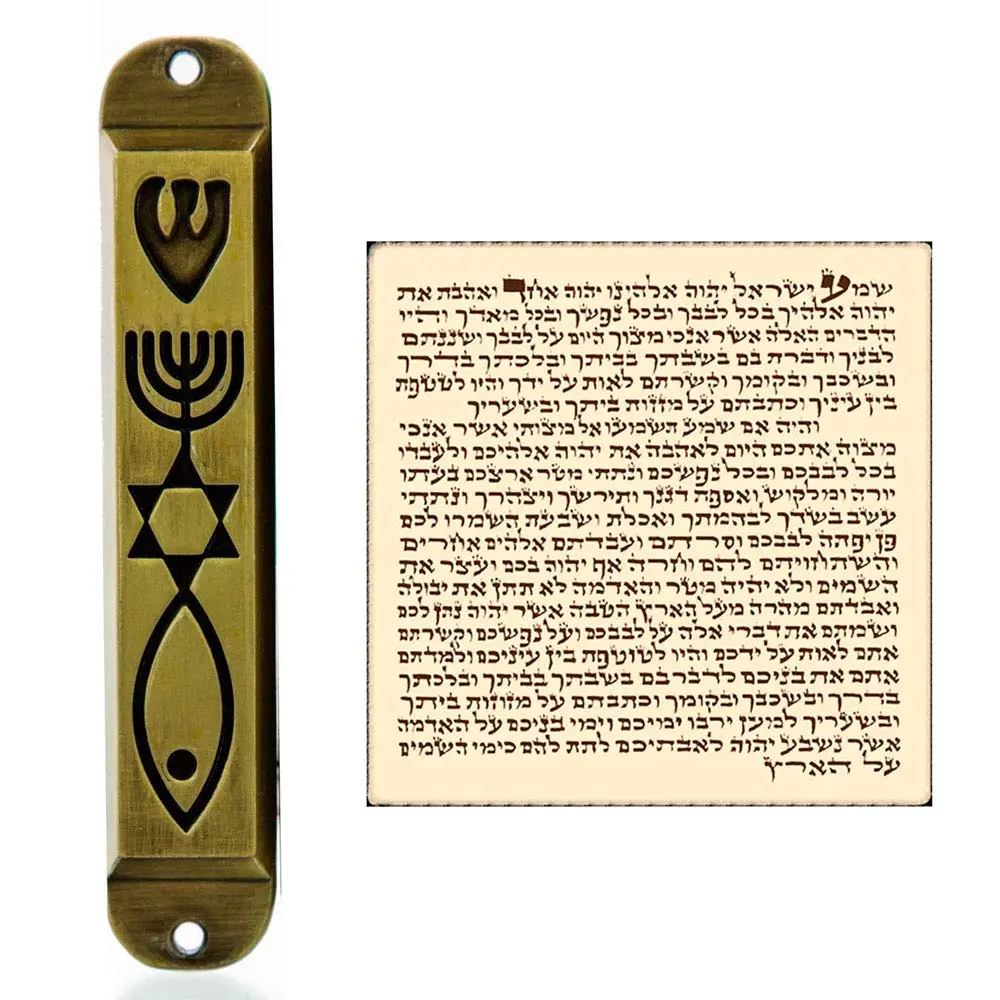Symbol of God, the Torah, and protection.
Mezuzah means doorpost in Hebrew. It is a symbol of God and the Torah. Some people think of it as a symbol of protection. Mezuzahs can be found on the outside doorposts of Jewish residents. They can also be found throughout the home on the doorposts of living areas such as the kitchen and bedrooms. The mezuzah itself first appeared around 1272 – 1258 b.c.e. in Canaan. This mezuzah is prevalent in Rabbinic Judaism.

The mezuzah is a parchment called a Klaf on which is written a specific verse from the Torah. A qualifying scribe prepares the Klaf. The Klaf is placed in an ornate or plain container, ranging from metal to plastic. On the Klaf, the verses Deuteronomy 6:9- 4 and 11:13- 21 are written. These are the Jewish prayers, “Shema Yisrael.” Along with the prayer, the Hebrew word Shaddai, which is one of the names of God, is found on the back of the parchment and on the front of the container. The phrase Adonai, Eloheinu, Adonai, which means “The Lord our God, the Lord,” is placed on the back of the parchment along with the Hebrew word Shaddai and on the container exactly opposite of the inscription on the front.
The mezuzah is usually placed diagonally on the doorpost. Two Rabbis could not determine whether it should be placed horizontally or vertically. They compromised and decided it should be affixed to doorposts at an angle. While some people believe the mezuzah is a way to honour God and the Torah, some of the early Rabbinic sources have called it a protection amulet, and many people today still feel it is a symbol of protection for their homes. The Samaritans also display mezuzahs, but they differ in their inscriptions. They inscribe their mezuzah with a verse from the Five Books of Moses. They have also placed a plaque made of stone that was inscribed with the Ten Commandments above the front door of their house. This practice goes back to the Early Muslim and Byzantine periods. Today, they make their mezuzah from a wooden plate, parchment, high-quality paper, or marble. They inscribe these with a verse from the Samaritan Torah. Also, some Samaritans use the same small Jewish-style case as above around their houses. They would put Samaritan verses inside the case. It is considered good to have as many of these in the house as you can.

» Amulet
» Ajna
» Arsenic
» Merkaba
» Hung
» Yin Yang
» bindi
» IK Onkar
» Khanda
» Halo
» jiahu
» Tau
» Uraeus
» Menorah
» Quincunx
» Tilaka
» Taijitu
» Vajra
» Chai
» Chi Rho
» Bagua
» Dragon
» Hunab Ku
» Caduceus
» Infinity
» Ichthus
» Hedjet
» Lauburu
» Om
» Ankh
» Chalice
» Pentacle
» Maat
» Ogham
» Mandala
» Kartika
» Khamsa
» Heart
» Labrys
» Sun Face
» Raven
» Triskele
» Scarab
» Dove
» Hanukia
» Anubis
» Trishula
» Durga
» Mezuzah
» Bay Tree
» Geruda
» Kinnara
» Quito
» Condor
» Blue Jay
» Falcon
» Makara
» Rosary
» Uluru
» Apsaras
» Hanuman
» Serpent
» Minotaur
» Mercury
» Apex
» Vestra
» Yoni
» Astarte
» dakini
» Calabash
» Mandrake
» Rebis
» Typhon
» Vegvísir
